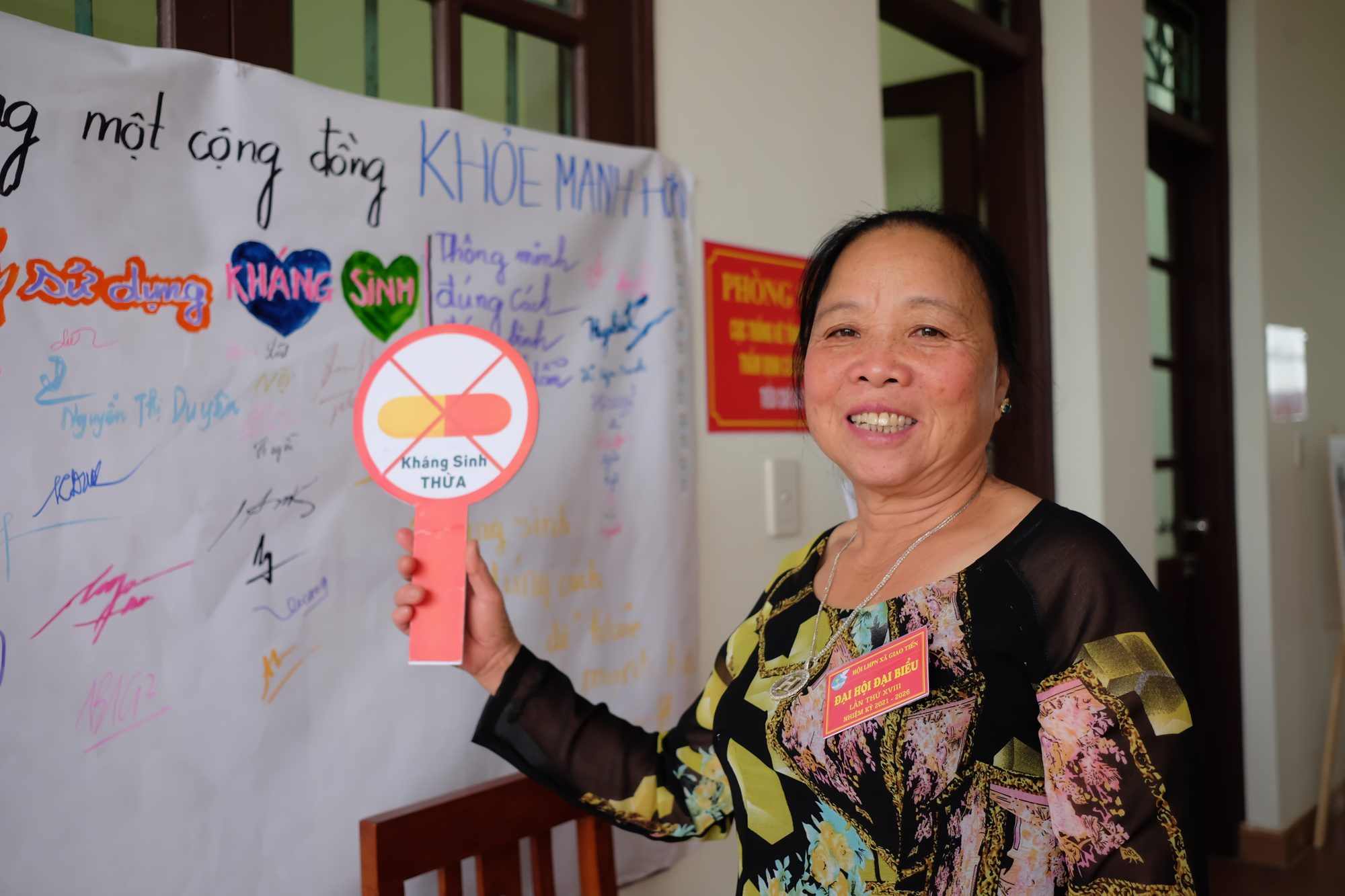Photo: A community member in Nam Dinh Province at OUCRU’s Photovoice exhibition in 2021.
C-reactive protein point-of-care testing (CRP-POCT) is a simple blood test that can be used to determine whether an infection is likely to be caused by a bacteria or a virus. This is important because antibiotics are only effective against bacterial infections. By using CRP-POCT, pharmacists can provide patients with more informed advice about whether their illness can be treated with medicines for symptomatic relief, or whether they should see a doctor for appropriate diagnosis and possible prescription of antibiotics. This step can help to reduce unnecessary antibiotic use and the spread of antibiotic resistance.
The study, published in Open Forum Infectious Diseases, found that 96.5% of customers who experienced CRP-POCT supported its future introduction at pharmacies. The majority of customers (78.3%) were also willing to pay for the service, with an average willingness-to-pay of US$2.4.
This is an important finding, as Vietnam has one of the highest rates of antibiotic use and resistance in the world. Inappropriate antibiotic use is a major driver of antibiotic resistance, which threatens the effectiveness of antibiotics and puts lives at risk.
“Despite legislation to restrict over-the-counter antibiotic sales in Vietnam, this practice is still widespread, which worsens antimicrobial resistance in Vietnam. CRP-POCT provides pharmacists with an alternative product to sell instead of antibiotics.”
Last author Associate Professor Sonia Lewycka.
The study, conducted in Nam Dinh City, involved a mixed-methods approach, including a customer exit survey (n=520), focus group discussions (n=20), and in-depth interviews with pharmacists and other stakeholders (n=12).
The study found that CRP-POCT could help to reduce unnecessary antibiotic use by providing pharmacists with objective information to guide their dispensing decisions, and patients with evidence to reassure them when antibiotics are not needed. Currently, antibiotics are often dispensed without a prescription in Vietnam, and the study found that the majority of antibiotic transactions (81.4%) were for patients who did not have a clinical need for antibiotics based on their CRP levels.
The study also identified a number of enablers and challenges for implementing CRP-POCT at pharmacies. Enablers included customer and pharmacist demand for the service, as well as the perceived benefits of CRP-POCT in reducing unnecessary antibiotic use. Challenges included the need for training and support for pharmacists, as well as the development of clear guidelines for CRP-POCT use.
“Rapid testing became more common and acceptable during COVID-19 and provided patients with convenient access to healthcare. Extending testing services at pharmacies would affirm pharmacists as important stakeholders in the health system, and in the fight against AMR.”
First author of the study, Dr Nguyen Vinh Nam
The authors also recently published a commentary in the Lancet Global Health, arguing for greater attention to the potential for CRP-POCT services in the community as a tool in the fight against AMR. Access to timely and accurate diagnosis is one of the four pillars in WHO’s people-centred strategy to address AMR, and contributes to the United Nations’ Sustainable Development Goal of improving access to quality healthcare, including diagnostic services.
To learn more details, visit the publication.







